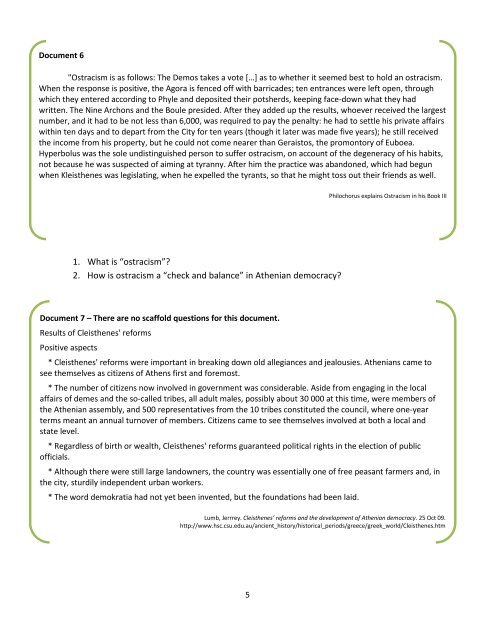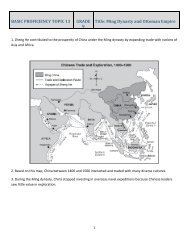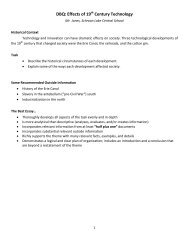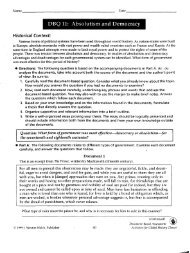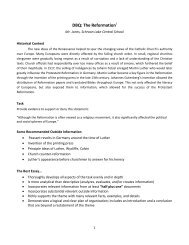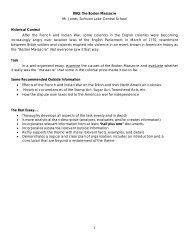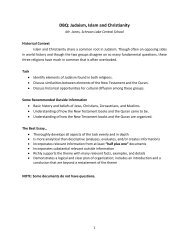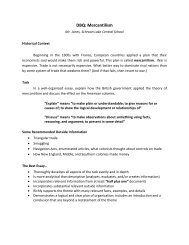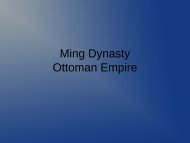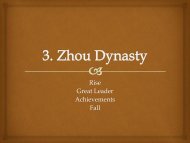DBQ Athenian Democracy
DBQ: Athenian Democracy - JonesHistory.net
DBQ: Athenian Democracy - JonesHistory.net
- No tags were found...
Create successful ePaper yourself
Turn your PDF publications into a flip-book with our unique Google optimized e-Paper software.
Document 6<br />
"Ostracism is as follows: The Demos takes a vote […] as to whether it seemed best to hold an ostracism.<br />
When the response is positive, the Agora is fenced off with barricades; ten entrances were left open, through<br />
which they entered according to Phyle and deposited their potsherds, keeping face-down what they had<br />
written. The Nine Archons and the Boule presided. After they added up the results, whoever received the largest<br />
number, and it had to be not less than 6,000, was required to pay the penalty: he had to settle his private affairs<br />
within ten days and to depart from the City for ten years (though it later was made five years); he still received<br />
the income from his property, but he could not come nearer than Geraistos, the promontory of Euboea.<br />
Hyperbolus was the sole undistinguished person to suffer ostracism, on account of the degeneracy of his habits,<br />
not because he was suspected of aiming at tyranny. After him the practice was abandoned, which had begun<br />
when Kleisthenes was legislating, when he expelled the tyrants, so that he might toss out their friends as well.<br />
Philochorus explains Ostracism in his Book III<br />
1. What is “ostracism”?<br />
2. How is ostracism a “check and balance” in <strong>Athenian</strong> democracy?<br />
Document 7 – There are no scaffold questions for this document.<br />
Results of Cleisthenes' reforms<br />
Positive aspects<br />
* Cleisthenes' reforms were important in breaking down old allegiances and jealousies. <strong>Athenian</strong>s came to<br />
see themselves as citizens of Athens first and foremost.<br />
* The number of citizens now involved in government was considerable. Aside from engaging in the local<br />
affairs of demes and the so-called tribes, all adult males, possibly about 30 000 at this time, were members of<br />
the <strong>Athenian</strong> assembly, and 500 representatives from the 10 tribes constituted the council, where one-year<br />
terms meant an annual turnover of members. Citizens came to see themselves involved at both a local and<br />
state level.<br />
* Regardless of birth or wealth, Cleisthenes' reforms guaranteed political rights in the election of public<br />
officials.<br />
* Although there were still large landowners, the country was essentially one of free peasant farmers and, in<br />
the city, sturdily independent urban workers.<br />
* The word demokratia had not yet been invented, but the foundations had been laid.<br />
Lumb, Jerrrey. Cleisthenes’ reforms and the development of <strong>Athenian</strong> democracy. 25 Oct 09.<br />
http://www.hsc.csu.edu.au/ancient_history/historical_periods/greece/greek_world/Cleisthenes.htm<br />
5


